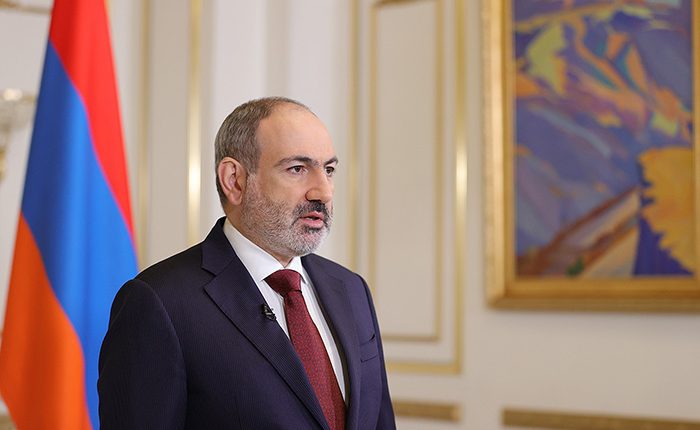YEREVAN — Prime Minister Nikol Pashinyan formally announced on Sunday that he is resigning to pave the way for snap general elections aimed at ending the post-war political crisis in Armenia.
“In order to implement the decision to hold pre-term parliamentary elections on June 20, today I am resigning as prime minister of the Republic of Armenia,” he said in a televised address to the nation.
Under the Armenian constitution, fresh elections can be held only if the prime minister resigns and the parliament twice fails to elect another head of the government. The current National Assembly is controlled by Pashinian’s political allies.
“The parliamentary majority will not elect a prime minister, the National Assembly will be deemed dissolved, and pre-term parliamentary elections will be called,” said Pashinyan. “During this [pre-election] period, I will continue to perform the prime minister’s duties on a full scale envisaged by Armenia’s constitution and laws.”
The prime minister, who swept to power in a 2018 “velvet revolution,” reaffirmed that he and his political team will seek reelection in the upcoming polls.
“I will be a candidate for the prime minister,” said Pashinyan, who will run as a candidate for his Civil Contract party. “If the people decide that I must quit the post of prime minister I will comply with that decision,” he said. “If the people decide that I must continue to serve as prime minister I will comply with that decision.”
After the resignation of the Prime Minister, the factions of the National Assembly have the right to nominate candidates within seven days; if this does not happen, then a new election of the Prime Minister is held, in which candidates nominated by at least one third of the total number of deputies have the right to participate.
If the Prime Minister is not elected by a majority vote of the total number of deputies, the National Assembly is dissolved by force of law.
According to the Constitution of Armenia, early elections to the National Assembly are held not earlier than thirty and not later than forty-five days after the dissolution of the National Assembly. At the same time, the parliament itself will need at least 14 days to dissolve, since the National Assembly can be dissolved if the Prime Minister resigns.
Later in the day, Armenian President Armen Sarkissian signed a decree, accepting the Government’s resignation based on Article 130 of the Constitution.










